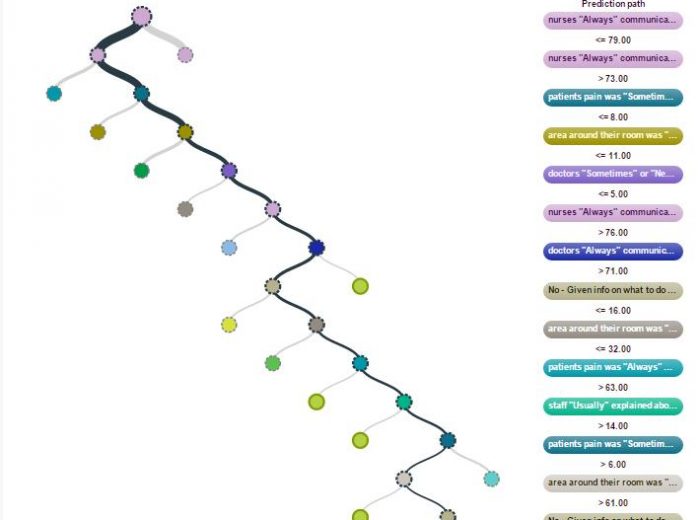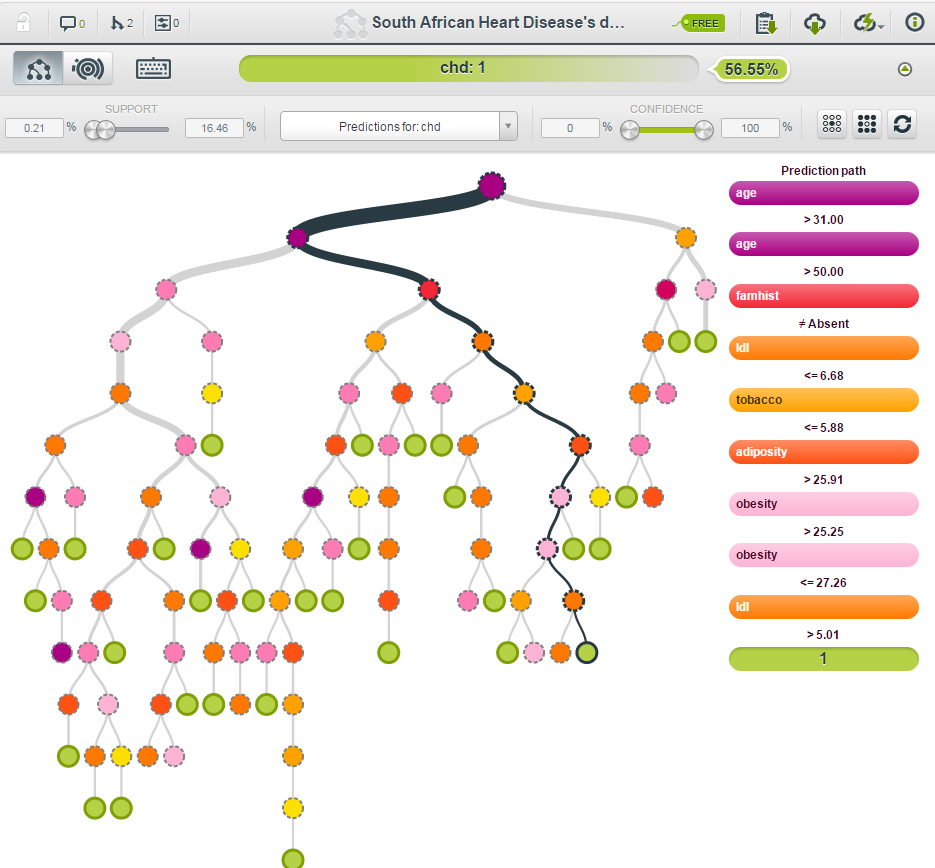
“Software is eating the world”. The phrase is from Marc Andreessen, an entrepreneur and software engineer who, among other professional achievements, has the creation of browsers such as Mosaic and Netscape and the creation of one Silicon Valley’s most important venture capital funds, Andreessen Horowitz. The quote was also the title of an article he wrote on August 20, 2011 in The Wall Street Journal and, in a way, it’s the perfect example of what’s happening today with APIs (Application Programming Interfaces), those algorithms that are transforming tools and applications worldwide.
Within the world of Big Data and the use of APIs for developing software, the area of machine learning and predictive modeling is one of the most innovative trends. Startups like Big ML, CleverTask, Datagami and Scaled Inference are leading a field of research that uses the so-called predictive APIs to change investment criteria, risk assessment, the stock market, predictions of demand, health diagnosis, or internet searches.
What is a predictive API: machine learning as a solution
Machine learning technologies have been used for decades in such common applications as email. Current anti-spam filters are systems capable of learning from data and extract patterns. They learn the IP source addresses, content or text and images ratios that are used in the emails marked as spam by the user, and apply an automatic rule. Before, these systems were only available to mathematicians, data scientists and programmers, but predictive APIs have democratized their use.
“They are tools for programmers to create predictive models by simply introducing historical data,” says Andrés González, a machine learning consultant at CleverTask. In the end, a predictive API actually facilitates the development of predictive models, because it is the own API who detects data patterns and assigns the probability that a future event may belong to that pattern.
What are predictive APIs for?
Companies are starting to see the enormous potential of predictive models. Online payment companies use solutions with predictive APIs to detect fraud; large corporations use them to predict the prices of products, select customers based on their behavior in social networks or browsing the web, to know who will be the most productive employees or predict failures in technological equipment; electricity companies want to forecast energy demand; financial institutions aim to optimize their portfolio; and public administrations are using them to predict urban traffic…
Best of all, managers in those companies can access the information through simple visualizations. For example, Big ML creates tree graphics with predictive models in many sectors, i.e. health. Their website includes several practical examples of this startup’s work in the field of machine learning and data visualization.
This is a model on the experience of patients in a hospital: predictions regarding the treatment of patients by doctors and nurses, medical information management, cleaning of rooms, services… The benefits: find out if the training of nurses has to be improved, soften the interaction with patients, or change the cleaning contract.

Another example is the prediction of heart disease in South Africa and their causes. In the end, Big ML’s solution creates different paths, depending on the patient’s age, family history, and smoking or obesity factors.

What is important is not only that it extracts high-value insights, but that the algorithm is able to learn with that task. Each prediction of the algorithm that is confirmed feeds the following prediction, and improves the accuracy of the model. This is the essence of machine learning: a snowball that allows a bank, an electricity company or a hospital to know beforehand what will happen in six months.
“Machine learning may generate a social revolution, even higher than that of mobiles”, predicts Gonzalez. “There are hospitals in the US already predicting strokes with two hours in advance, or applications that alert drivers of a high probability of having an accident”, he concludes.
Practical uses of predictive APIs
Thanks to predictive APIs, companies can make the most of their data without needing to use desktop software or hiring third parties to manage their sensitive information. “Machine learning allows that, rather than using equations with unknown coefficients and adjust them to the data, now we use flexible models that can be trained to design predictive patterns of large volumes of data,” says Keiran Thompson, co-founder and chief data scientist at Datagami.
The main problem of machine learning is that the tools that are being used (such as the programming language R, used to create statistical models in data science; scikit-learn, Python’s tool for data analysis; or Spark, the technology that is revolutionizing Big Data due to its enormous processing speed) are too complex for most professionals. Hence, companies like Big ML, CleverTask or Datagami concentrate their efforts on designing tools for non-experts.
“The landscape of machine learning is well populated with powerful algorithms and high quality implementations of open source, yet accessibility is very limited,” says Thompson from Australia. To solve this problem, Big ML “develops tools to visualize data easily,” says its co-founder and CEO Francisco J. Martín. They transform scientist’s tools in tools accessible to everyone and easily scalable.
“It’s an exciting time! The possibilities of these amazing technologies are just starting to be outlined, and they are unlimited,” says Thompson. Today it is hard to guess which will be the next step in predictive APIs, but surely an incredible future lies ahead of us.
Click here for more information on APIs.




























